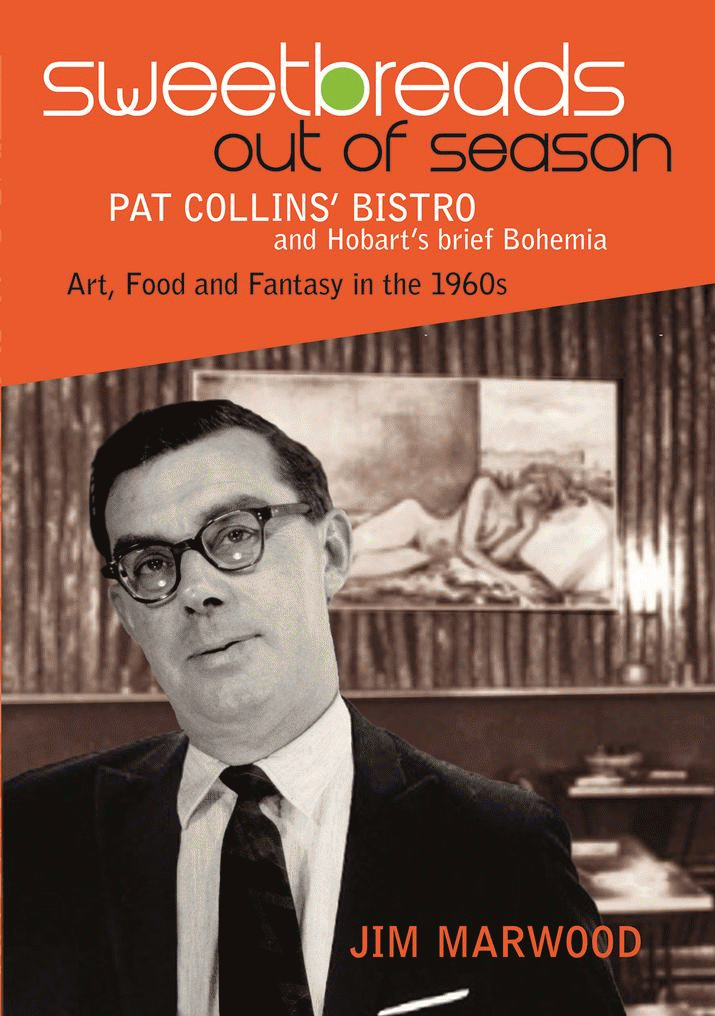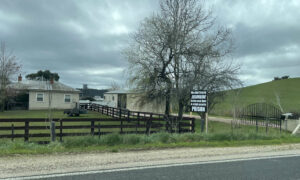H.G.Wells was famous for his War of the Worlds but in later years he became notorious for his flamboyant sexual liaisons.
In 1934 his latest cast-off, an outspoken Dutch writer named Odette Keun, published a book about the English in which she complained the lovemaking was ‘primitive, morose, hasty and reduced to bare essentials’.
Perhaps the young postman she picked up at a reception was part of her research? Fifty years later he recalled the effect: ‘She just took my elbow and whispered, “Darling, I want you to fuck me.” It felt as though my dick had been plugged into 240 volts!’
Odette introduced the twenty-year-old Pat Collins to the world of progressive English socialism and ‘free love’. Then she guided his part-time Territorial Army service towards treasonous gunnery instruction for volunteers on their way to fight fascism in Spain. Two years later Odette had moved on and Collins, the postman, had met Liesel, a young Jewish refugee from Nazi Germany. When war came in 1939 they were camping in deserted houses in London while Pat worked as stretcher-bearer during air-raids.
Army service in India led the family to post-war Melbourne, but despite promises by the Immigration Office in Karachi, after the death of his young wife, Pat found only low-paid work as travelling salesman, shearers’ cook and house-painting. He was saving to set up a small café. It may have been the first eatery in Toorak Road, and his timing was right; Melbourne was about to host the Olympic Games. Pat Collins’ café Brummel’s thrived, a social centre for the artists from Montsalvat and Eltham, and meeting-place for young Barry Humphries and friends of the Melbourne ‘Drift’.
By 1959 Pat had re-married. Despite success in Melbourne, his new wife persuaded him to sell up and move to Hobart.
Pat was fired up by libertarian ideas from old Justus Jörgensen at the Montsalvat Colony in Eltham, with talk about cheerful little French bistros serving simple, interesting food and good wine by the glass, everything informal. Friends warned him about his prospects. (‘Tasmania? No, mate, that’s the ‘ABC’ Island; just apples, beer and, well, the other thing. They don’t do restaurants’). Pat’s friends spoke truly; in Hobart all he found was a few dull, dry cafés and restaurants, or plain pub meals with the alternative of grim hotel dining rooms with inexpertly served wine. ‘A small informal bistro? Sorry, can’t be done. Licensing laws, you know.’ That was how the powerful hotel owners liked it and they intended to keep it that way.
Seven years in the army taught Pat that there’s a way around every regulation. Lateral thinking was needed. An old pub, right in the centre of town had a scruffy under-used basement bar. ‘A long-term lease, to include redecoration, and all drinks to be bought through the pub above?’ The publican’s dreams had come true! Now all Pat needed was – money. Luck was with him; an old friend arrived from Melbourne to visit a friendly lady in Battery Point. He felt a very personal need for a business venture in Hobart – one that would justify frequent trips across the Bass Strait.
It was Tasmania’s first independent restaurant with the use of a full licence …
So, in 1961 Pat’s ‘Bistro’ opened. It was Tasmania’s first independent restaurant with the use of a full licence. The venue became a centre for a generation of artists, young professionals and ‘lefty’ politicians, Neil Batt and his journalist friend Roger Lupton, as well as young broadcasters and actors who were beginning their careers at the ABC headquarters just up the road, Robyn Nevin, Judy Tierney, Roger Lupton, Tim Bowden and Helene Chung, with Collins as genial host and social catalyst.
Apart from his ‘service in the Indian Army,’ and a long-running joke about heroism during the Indian Mutiny, Pat’s personal history remained a closed book. Pat was more interested in present-day Tasmania, convinced the place was run by a dark oligarchy involving the Tasmanian Club, the Legislative Council and of course the Mercury, (then still the private domain of the conservative Davies Brothers). When Pat was interviewed for commercial radio by a young woman, she showed little knowledge of food and wine, but Pat was delighted to be asked his opinion of Tasmania. His response quickly ended the session. Beaming his most benign smile, he replied, ‘There’s a worm in the fucking apple!’.
All through the 1960s, Pat Collins’ Bistro was a freewheeling centre for argument and dissent. The long-running, conservative, Reece Government was losing its grip on power, opposition was growing to our Vietnam intervention and fledgling conservationists were opposing the destruction of Lake Pedder. Social complacency was further shattered when bush fires burned through southern Tasmania in 1967, but for the younger generation, it was a small green pill that brought greater change by disconnecting sex from pregnancy, changing our lives forever.
Every new idea was discussed at the Bistro bar and around the dining tables. The ‘dress-code’, rigidly applied in most venues, was ignored in the informal, relaxed Bistro. Pat observed and sometimes engineered new liaisons and was especially interested in the increasing popularity of the same-sex relationships that were frowned upon, even illegal, in most places. Our conservative Establishment found such laxity and liberality deplorable, but other restaurants noted the growing popularity of Pat’s licensed basement. At last, in1968 their demands for liquor licences were met, Tasmanian rules changed, and restaurants like Mona Lisa and Don Camillo were granted their ‘BYO’ licence.
Rodney Croome has commented ‘Changing…community attitudes is never easy, it involves sacrifice.’ Pat Collins enjoyed the company of gays and lesbians and accepted them in the Bistro, but he was no crusader; he just wanted a gentler, more tolerant society. He wasn’t even gay, but his attitude was seen as ‘corruption of the young’ and the conservatives reacted. The new Police Drug Squad was sent in to raid the premises. There were no drugs, but a packet of Polaroid photographs were confiscated. In the fashion of the time they were declared ‘obscene’ and used to shame and discredit the Bistro and its owner.
To read the whole story, of a prosecution that resulted in ‘one of the State’s most significant court cases’ and ‘a victory for civil liberties,’ and of Pat’s exile to adventure as itinerant cook on the mainland, see Jim Marwood’s oddly titled Sweetbreads out of Season, to be launched by Tim Bowden at Fullers in Hobart on Thursday 3rd September, and at Petrarch’s in Launceston the following lunchtime.
*Jim Marwood qualified in medicine in England, then emigrated as a ‘Ten Pound Pom’. He worked at a hospital in tropical Queenland, then came to Tasmania to avoid the crocodiles. He found relief from a low-paid hospital job in the company of Pat Collins at the Bistro bar, and only later realized Joni Mitchell was right, ‘You don’t know what you’ve lost till it’s gone.’ Sweetbreads is Jim’s third book about odd corners of Tasmanian society and it recreates something of what we lost when Pat Collins was dragged through the courts, forced to find temporary work outside Hobart, then sacked by his American employer for attending a Vietnam protest. Advance Australia (not very) fair!
• TODAY (Sun, Nov 1): ABC local interview with Chris Wisbey sometime between 10 & midday … all about Pat Collins and his Bistro



























Philip Lowe
July 29, 2015 at 00:07
I met Pat Collins on Magnetic Island,North Qld. in 1971.He had rented a shack overlooking the sea.
I was a footloose young Pom.There were lots of mendicant young people on the wander.
I remember Pat Collins as a source of good humour and good company.He was never out of order in any way at all. He smoked a lot.He seemed sad for some reason. I had a photograph of him that I can remember people in Hobart getting excited about.
… Good bloke.Does Queen Victoria still cast a shadow over Tasmania?
steve cumper
September 2, 2015 at 16:49
Not quite Dunston’s Adelaide however good for the hipsters to note that it has all been done before